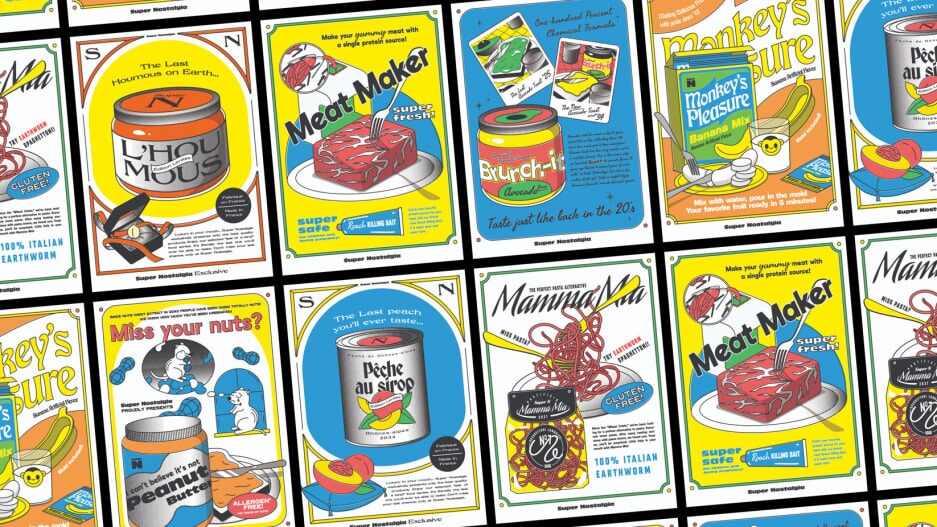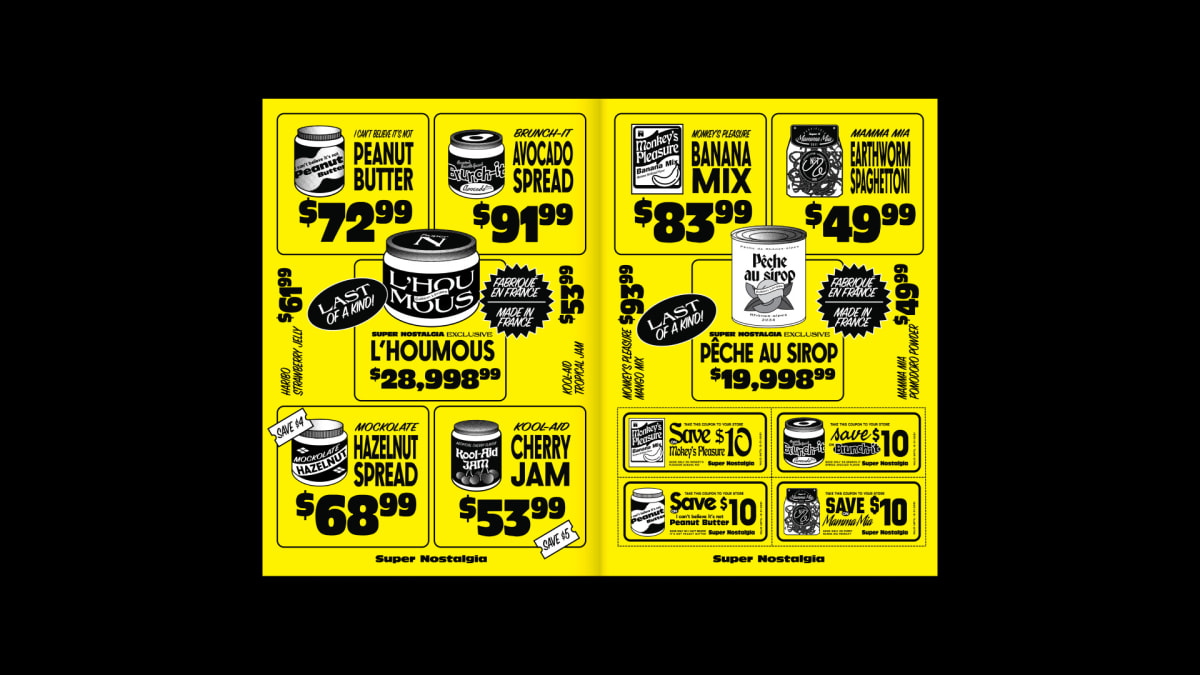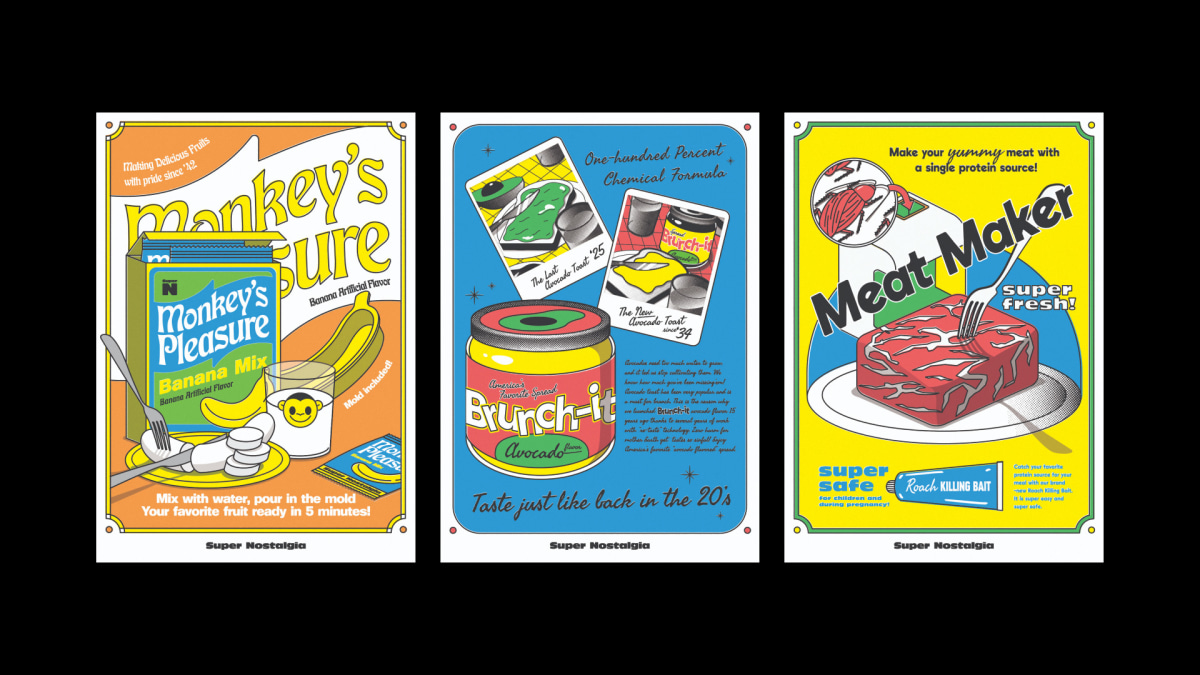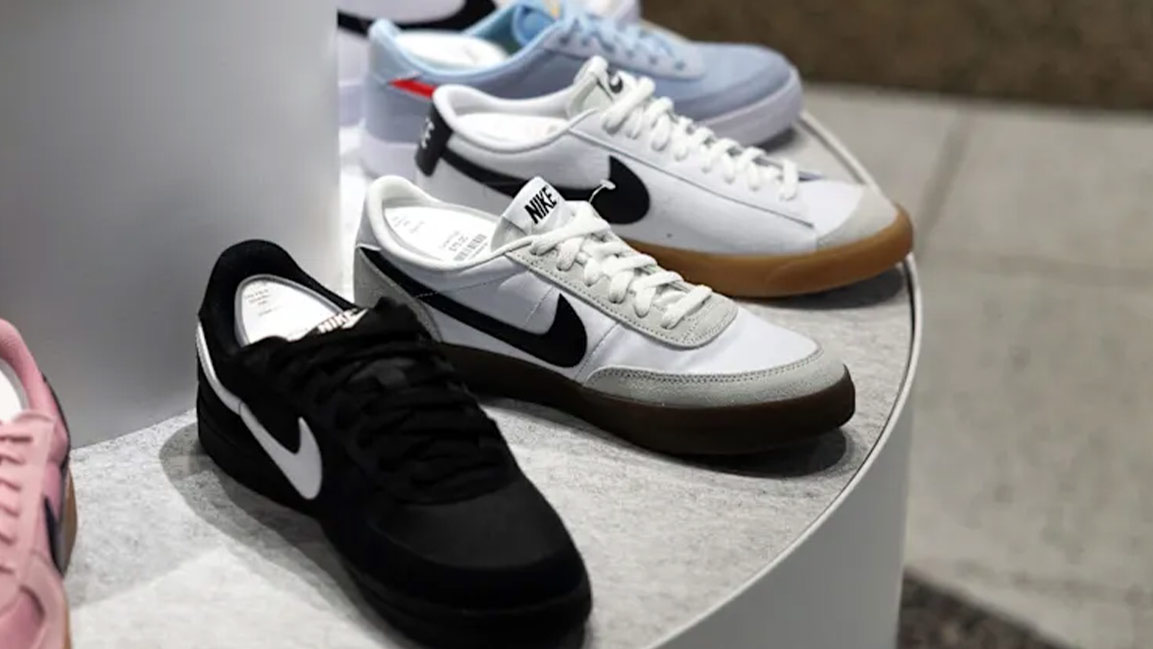- | 8:00 am
Cockroach grinders and powdered bananas: Beautiful food posters from the dystopian supermarket of the future
The posters—for peachless peaches and peanut-free peanut butter—are designed to show the potential effects of climate change on our food systems.

The year is 2050 and we have practically run out of avocados. Chickpeas are so rare that hummus has become a delicacy. And meat, which requires so much water to produce, has become so scarce that we’re making burgers out of cockroaches.

The supermarket of the future is looking grim—at least in the eyes of Gawon Lee. The Korean designer, who is a recent graduate of Hongik University and now divides his time between Paris and Seoul, has designed seven posters to help visualize how climate change might affect our favorite foods. The posters are part of a series titled Super Nostalgia; they were recently displayed during Dutch Design Week, and will be sold this weekend at an art book fair in Seoul called Unlimited Edition.

The impact—both current and potential—of climate change on agriculture has been well documented. In one study, scientists at the Zurich University of Applied Sciences in Switzerland found that as temperatures continue to rise, the land required to grow coffee, cashews, and avocados will either disappear, shrink, or shift. The success of many other crops, like cacao trees (think chocolate), coffee, tea, and grapes (wine!), are intrinsically linked to rainfall and will be threatened by more frequent wildfires and droughts.

The goal of Super Nostalgia is to make climate change personal and inspire action by tugging at viewers’ heartstrings.
After reading about foods that might be unavailable by 2050, Lee wondered what supermarket brochures would advertise if we no longer had peanut butter, bananas, or peaches to snack on. His vision was grim, but he didn’t want to scare people away, so he approached the task with a healthy dose of humor.
“Since nuts went extinct in 2043, people have been going totally nuts,” reads a poster advertising fake peanut butter that is labeled “allergen-free.” Another one showcases a powdered banana mix that can be whisked with water, poured into a banana-shaped mold, and will be “ready in 5 minutes.” The brand is called “Monkey’s Pleasure.”
To emphasize the sense of loss, Lee opted for an old-timey look that hearkens back to the 1950s and ’70s. “I wanted to talk about nostalgia with food, and while today’s design should be nostalgic in 2050, the public of today wouldn’t feel any difference,” he says.
After looking at grocery ads from American, French, and Korean stores, he also decided to mimic the absurdity of vintage tobacco ads that featured doctors promoting “fresh cigarettes.” In a poster of the “Meat Maker”—a revolting toaster-like appliance that turns cockroaches into protein—he wrote “super safe for children and during pregnancy.”

The series is a comical spin on a serious issue but is also a satire of our current moment, when even the taste of a peach has become commodified. To come up with the various concepts for the series, Lee asked himself: What would a big company do if certain foods have become endangered?
“They’ll try to sell the taste of it,” he says. The designer’s version of a peach, for example, comes in an Instagram-worthy can and reads “the last peach you’ll ever taste.” His avocado spread, meanwhile, comes in a jar with a playful label that reads “brunch-it.”







































